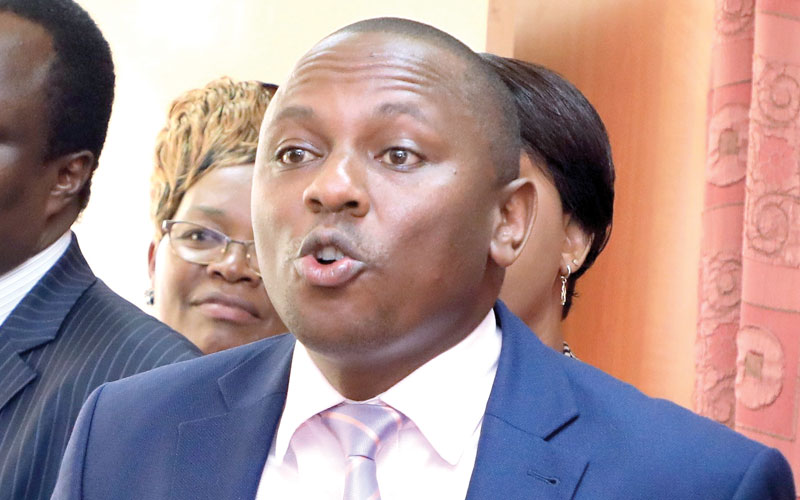MPs restore own proposed budget cuts, save Judiciary
By Mercy Mwai, November 27, 2019Members of the National Assembly yesterday restored their budgets that had suffered major deductions as proposed by the National Treasury.
The MPs also saved the Judiciary from the massive cuts that would have paralysed its operations after they recommended that Treasury should only reduce it by Sh200 million instead of the previous Sh3 billion.
They made the recommendation on a day that they told Treasury not to effect any reductions to the two institutions, ministries and State departments through the Integrated Financial Management Information System (IFMIS) and Treasury circulars before approval by the House as it was unconstitutional.
In a report tabled in the National Assembly by the Kimani Ichung’wa -chaired Budget and Appropriation Committee, the MPs reduced their budget by Sh1.3 billion from the Sh4.8 billion initially proposed by the Treasury.
According to the report, the changes in the Legislature include Sh360 million from Senate affairs, Sh150 million from the National Assembly vote and Sh795 million from the Parliamentary Joint Services.
The MPs also proposed an increment of Sh136.6 million to the Judicial Service Commission.
In total, the legislators are proposing a reduction of recurrent expenditure by Sh799.02 million and an increase in development budget by Sh50.57 billion, which is an overall increase in the total budget by Sh49.77 billion.
Reads the report in part: “…that the National Treasury should not effect any reduction in the approved budget of the Judiciary, Parliament and all MDAs through IFMIS and Treasury circulars before approval by this House.”
In the report that will be debated by the House today or tomorrow, the committee also proposed the removal of Sh1 billion allocated for the processing of the Huduma number cards despite the country spending up to Sh7.7 billion in the enlisting exercise.
Instead, the committee recommended the Auditor General carry out a special forensic audit of the National Integrated Identity Management System (NIIMS) that was used to enlist Kenyans to establish whether there was value for money and table a report to the National Assembly by end of March 2020.
On the Universal Health Coverage (UHC), one of President Uhuru Kenyatta’s Big Four agenda, the MPs want the money channelled through the counties as conditional grants as opposed to the Health Ministry, by amending the Division of Revenue Act.
“Upon approval of annual estimates, the National Treasury should load the approved budget within seven days into the IFMIS in accordance with the PFM regulations 2015, so as to ease implementation of annual work plans, procurement plans and clearance of pending bills and a status report be submitted to the National Assembly every quarter,” reads the report.
Other restorations
The MPs also restored the Sh1 billion that had been deducted from the State Department for Vocational and Technical Training to enable the construction of 30 teacher training institutions as well as Sh1.9 billion for university education aimed at reversing the cuts to capital projects.
The MPs proposed a reduction of Sh2.3 billion for the construction of the James Gichuru-Jomo Kenyatta International Express highway, from Sh5.3 billion and Sh1 billion for the construction of water and sewage relocation works for the expressway due to the lengthy procurement processes of goods and services.
Others are a reduction of Sh3.4 billion access roads to food security and nutritional facilities down from Sh3.8 billion, Sh185.1 million for access roads to affordable housing from Sh652 million, Sh3.4 bllion meant for the Naivasha Economic zone (Textile Park), Sh16.9 billion for the payment for Nairobi Internal Container Deport (ICD) and Sh18 billion for the Dongo Kundu special economic zones.
The Independent Electoral and Boundaries Commission (IEBC) also suffered cuts amounting to Sh340 million meant for the delimitation of electoral boundaries since the allocation could not be absorbed fully in the current financial year. It was allocated Sh106 million for the recruitment of 49 constituent registration officers and deputy registration officers.
